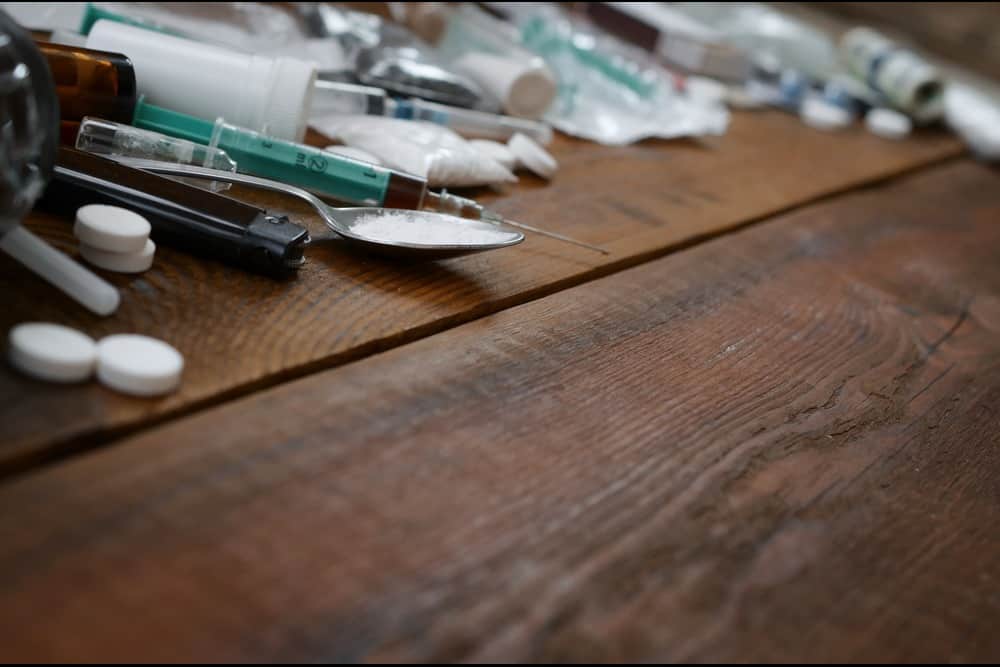Like many states in the country, New Jersey is currently in the midst of a major opioid crisis. With arrests and admissions to treatment facilities for opiate issues continuing to top every state list (1), it is easy to see that these substances are among the most commonly used in New Jersey. Throughout this article you will be able to see why this is, how this became true, and what other substances have continued to remain statistically common for New Jersey residents.
Throughout New Jersey and the rest of the nation, many have found themselves in a struggle with addiction that often seems hopeless. There is, however, hope. At Guardian Recovery Network, we understand the grip that addiction can have and because of this, we are committed to providing the best quality of treatment to every person that walks through our doors. Call Guardian Recovery Network today and speak with our admissions team to learn more about our New Jersey locations as well as the nation wide services we offer.
What Makes These Drugs Popular?
When looking at the 2020 data (1) for admissions to drug and alcohol treatment facilities for New Jersey residents, heroin ranks as the number one drug of choice for those entering treatment followed by alcohol and marijuana as a distant third place.
As with many states, New Jersey is no different when it comes to the reasons for such high rates of heroin abuse and its relation to the prescription of opioids. With the over prescription of opioids, many were not made aware of the potential addictive nature of these substances. As prescriptions ran out, finances ran low, or tolerances grew, many who were prescribed these legal opioids began searching for something stronger or more cost efficient. The substance that often fills this need is heroin. In New Jersey during the year 2022, over 3 million prescriptions (2) were written for opioids. With this many opioids being made available to New Jersey residents, it is no surprise why many find themselves struggling with their addictive power.
With Alcohol overuse disorders making up 31% (1) of treatment admissions, its availability, legal status, and lack of stigma continue to make it an often underestimated substance when it comes to addiction. Over 30,000 New Jersey residents found it to be causing enough of an issue in their lives to seek out substance abuse treatment.
How Do These Drugs Make It Into New Jersey?
According to 2017 statistics from the DEA (3), the vast majority of the heroin consumed in the United States is smuggled across the Mexican/American border. In 2017 it was estimated that Mexico’s heroin production was upwards of 111 metric tons, most of which was sent to the U.S. As illegal drugs travel into the U.S., they are distributed among the major cities and interstates. As with most substances, the supply will be funneled to where the demand is the greatest.
Demographics of Drug Users in New Jersey
In 2019 there were over 98,000 admissions (1) in New Jersey to drug and alcohol treatment facilities. Of these admissions, 42% reported that heroin was their primary drug of choice with alcohol second at 31% and marijuana a distant third at 11%. 68% reported as male with 32% reporting as female. Racially, 60% reported that they were white, 23% reported that they were African-American, and 16% reported that they were Hispanic.
Which County in New Jersey Has the Highest Drug Use?
Of the substance abuse treatment admissions for 2019, almost 9,000 of these admissions reported that Camden county was their place of residence making it the leading county for treatment admissions in the state. Of these residents, over 3,500 of them reported that heroin was their primary drug of choice and nearly 2,200 reported alcohol.
How Does New Jersey Compare to Other States?
When examining data from 2020 (4), New Jersey ranks 35th in the country for substance abuse problems. Factors considered were substance abuse treatment admissions, drug arrests, and the availability of substance abuse treatment in each area that was measured.
Steps New Jersey Is Taking to Deal With the Drug Problem
New Jersey recognizes the extreme need for something to be done about the rates of substance abuse within the state, especially for opioids. One of the steps that it has taken is the NJ CARES initiative (2). This initiative is sponsored by the New Jersey state government and is dedicated to ensuring state grant funding is allocated to resources dealing specifically with the opioid crisis. Accountability for prescribers, access to treatment, and access to overdose prevention substances are among the top priorities of the initiative as well as providing the general public with up to date and accurate data concerning opioids.
Drug Use, Admissions, & Overdose Statistics in New Jersey
Though over 312,000 New Jersey residents (5) sought substance abuse treatment between 2016 and 2021, it is estimated that in 2022, nearly 3,000 residents lost their lives due to a drug overdose. The overdose prevention substance Naloxone was reportedly administered over 15,000 times in New Jersey during 2022. The majority, 57%, of the drug related deaths were identified as white, with a growing number of African-American deaths making up 25%. The age range for the most overdoses in New Jersey were 35-44 year olds making up 24% of drug overdose deaths.
Seeking Substance Use Treatment
Though substance use treatment in New Jersey is becoming more readily available, there are still many who struggle silently with their own battle against addiction. If this is you, there is hope. Guardian Recovery Network is on the frontlines in New Jersey providing the highest quality of substance abuse treatment in our New Jersey locations, and numerous locations nationwide.
Contact us today for a free, no obligation insurance check. We are able to smoothly transition you into the level of care that is right for you. There is no need to fight this battle alone. Call today and begin your journey of recovery.

Reviewed for accuracy by:
Amanda Hilzer M.Ed, CAADC, IADAC, ICCS, LCADC, CCS
Amanda graduated from Lehigh University with both an undergraduate degree in Psychology and a Master’s of Education degree in Counseling Psychology and has worked in the field of substance use disorder treatment and mental health treatment as a counselor and as a clinical manager for over 14 years.

































